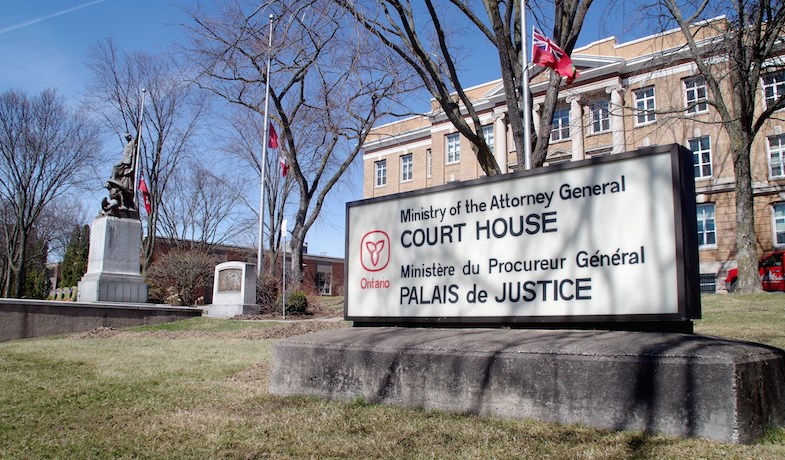The police officers investigating the death of a young man whose body was found on the highway in October 2013 repeatedly violated Terry Mosher's Charter rights during searches of his vehicle, a judge has ruled.
Ontario Court Justice Romuald Kwolek found the breaches were significant, but he dismissed a defence application to exclude the evidence uncovered during the van searches from the man's trial.
"I am not satisfied that the repute of the administration of justice is best guarded by the exclusion of the evidence," he concluded in a 19-page written decision released Monday.
"The context of this charge very strongly supports the inclusion of the evidence."
Mosher, 76, was charged with obstructing police following the discovery of the body of Jesse Roach on Highway 17B in Garden River First Nation.
He reported coming upon the 22-year-old man's body on the roadway, about 500 metres west of Bell's Point Road, around 5 a.m. on October 13, 2013.
His trial is scheduled to begin next week at the Sault Ste. Marie courthouse.
During a voir dire that took place over five days in February and March, Mosher's lawyer Ross Romano argued that his client's rights were violated by four warrantless searches and seizures of his vehicle.
The searches occurred on October 16, 17 and 18.
Romano wanted to have forensic evidence found on the undercarriage of the van during Ontario Provincial Police searches excluded from the trial.
Mosher was charged November 1, 2013, after the forensic material was analyzed by the Centre for Forensic Sciences.
In his decision, Kwolek noted the charge is based on the accused failing to initially provide information that he struck the deceased (who was prone on the highway) instead claiming he avoided striking the man by taking evasive action.
The first search took place on October 16 at Mosher's St. Joseph Island residence, after the officers received his written consent.
Kwolek said he was satisfied that Mosher consented to this time-limited, half-hour cursory examination of the van and concluded that this initial search was reasonable.
But when it came to the three further searches and seizures, the judge said it was clear from the evidence heard at the voir dire that the police committed a number of errors that violated Mosher's rights.
The initial breach under the Charter of Rights and Freedoms occurred when the vehicle was seized, without a valid consent from Mosher, and brought to the OPP detachment in the Sault, he said.
Kwolek said after a detailed review of the various searches he found that there were repeated breaches.
"I do not find any bad faith on behalf of the actions of the officers but do find repeated errors and mistakes and willful blindness."
The breaches were significant, but did not involve egregious police conduct or bad faith, he concluded.
Efforts were made by the officers to obtain the accused's written and verbal consent and "were not sought in any oppressive or vexatious manner," he said.
Kwolek, who heard and viewed six hours of audio and videotape of interactions between Mosher and officers, said police always treated the accused in a respectful and sympathetic manner.
In his conclusions, the judge also said there is "strong community interest" in having the case adjudicated on its merits.
The context of the obstruction charge relates to the death of a young aboriginal man as the result of being struck by a vehicle on First Nation territory, Kwolek said.
"The event itself is a tragic one which has significantly affected the small tight-knit community of Garden River," he said.
"This factor is one that strongly supports the inclusion of evidence, notwithstanding Charter breaches."
Kwolek noted the community's concern was reflected by the number of members of the community and the Roach family who were in court daily to witness the proceedings.
"The evidence that is being sought to be excluded is relevant, reliable forensic evidence that was obtained from the undercarriage of the vehicle, with respect to an offence that has a significant community interest," he said.
"Society as a whole has an interest in the determination of the case on its merits."
